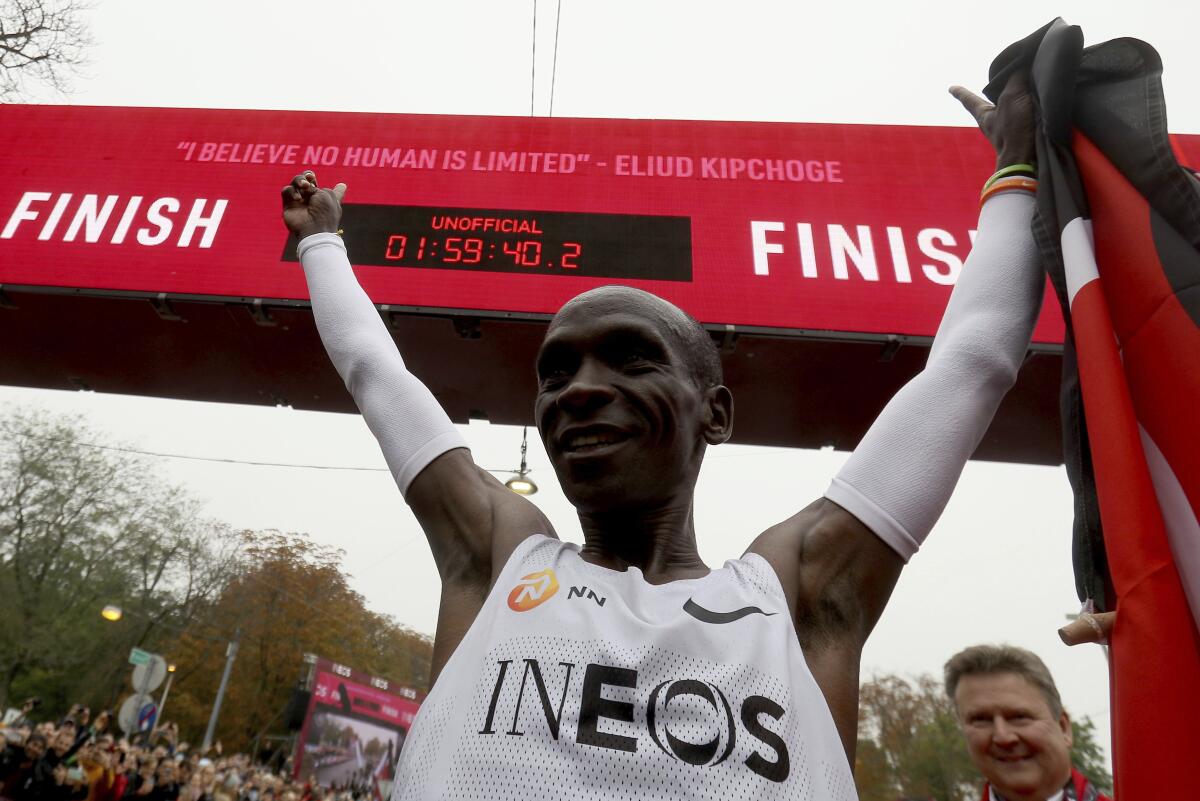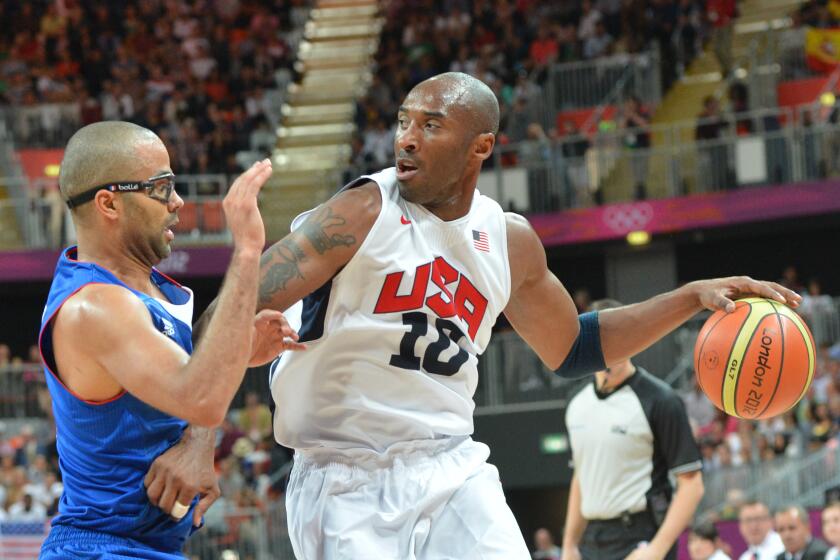Track officials ban some Nike shoes ahead of 2020 Tokyo Olympics

Track officials have moved to defuse the high-tech shoes some elite runners wear, particularly the specialized Nike prototype that Kenyan star Eliud Kipchoge used for a historic marathon performance last fall.
World Athletics, the sport’s international federation, announced Friday that all shoes must satisfy technical limitations and be available to anyone on the retail market for four months before they become legal.
The time frame is important, with the 2020 Summer Games about six months away.
“It is not our job to regulate the entire sports shoe market but it our duty to preserve the integrity of elite competition by ensuring that the shoes worn by elite athletes in competition do not offer any unfair assistance or advantage,” said Sebastian Coe, the federation president. “I believe these new rules strike the right balance by offering certainty to athletes and manufacturers as they prepare for the Tokyo 2020 Olympic Games.”
Shoes may no longer have soles thicker than 40 millimeters and may not contain more than one rigid plate or blade embedded lengthwise. Spiked shoes may have an additional plate, but only to keep the spikes attached.
The Nike Vaporfly, a controversial model available for about $250 on the open market, was not banned.
Kobe Bryant always loved the Olympics. He said winning gold might have been his greatest accomplishment, better than an NBA championship.
Kipchoge reportedly wore a prototype called the Alphafly, which contained triple carbon plates inside a compressed foam sole designed to improve performance and economy of effort.
The defending Olympic champion and world-record holder ran the first sub-two-hour marathon in history at a special event that did not qualify for a new record because he was the only official entrant, surrounded by alternating teams of pacesetters who shielded him from the wind.
A day later, countrywoman Brigid Kosgei wore another Vaporfly variation while winning the Chicago Marathon in 2:14:04, setting a women’s world record that is still pending ratification.
Even the most-common Vaporfly models have generated debate since their introduction several years ago. Some people in the track world see them as a natural evolution in footwear, much like high-tech tennis rackets; others believe they provide too much assistance.
Yannis Pitsiladis, a sport and exercise science professor at Brighton University in Britain, told Reuters that some of the shoes equate to “technological doping.”
In issuing their indefinite moratorium, which becomes effective April 30, track officials planned further research, calling upon biomechanics experts to better understand the technology.
“If further evidence becomes available that indicates we need to tighten up these rules,” Coe said, “we reserve the right to do that to protect our sport.”
More to Read
Go beyond the scoreboard
Get the latest on L.A.'s teams in the daily Sports Report newsletter.
You may occasionally receive promotional content from the Los Angeles Times.








